Introducing The Betta Fish - The Perfect Pet for You!
If looking for the kind of pet that will bring beauty, joy, and peaceful vibes to your home,
you should consider having a betta fish. Betta fish or siamese fighting fish as they are also known are increasingly popular pets due to their hypnotic appearance and playful personalities, they are
easy to manage and a budget-friendly pet option.

Table of Contents 🦑
The Betta Fish Journey
Betta fish, also known as Siamese fighting fish have been bred for their beauty and aggression and have been kept as pets for many centuries.
They originated in Thailand, and Southeast Asia and were first recorded in the 19th century.
In the early 20th century, These tropical fish were introduced to Europe and the United States as ornamental fish. They quickly gained popularity due to their striking appearance and relative ease of care.
Today, bettas are one of the most popular freshwater aquarium fish around the world, with a wide variety of colors and fin shapes available.
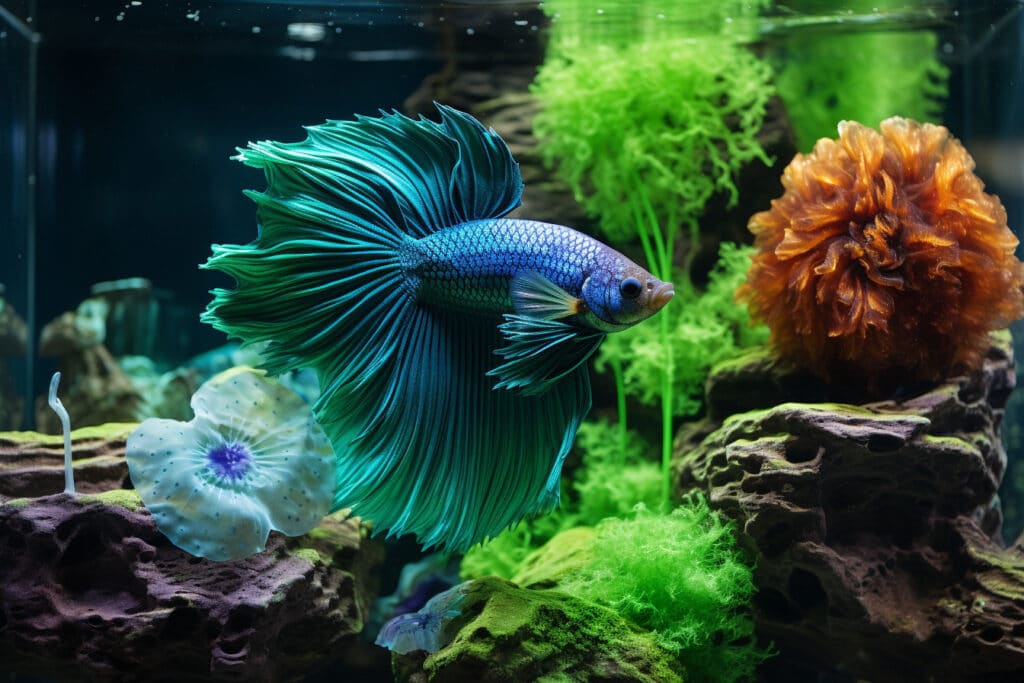
How Much Does Betta Fish Cost?
Betta fish price can vary depending on factors such as the type of betta, its color, and the store or breeder from which it is purchased.
On average, betta fish can cost anywhere from $2 to $50 or more. The more rare and unique the betta, the higher the price can be. Additionally, purchasing from a breeder or specialized store may also increase the cost compared to buying from a general pet store.
What Colors And Styles Do Betta Fish Have?
When it comes to color and patterns, bettas have a lot of styles and there is a huge variety of betta fish available on the market.
Common colors include red, blue, orange, yellow, and green. But if you’re looking for something more unique or unusual, you can also find betta fish with bi-color patterns such as marble or dragon scales. And with tail varieties like crown tail, half moon tail, and delta tail—among many others, you can find the perfect fish style for your betta With so many combinations of colors and patterns available.
Are Betta Fish Easy To Care Ror?
Betta fish can be relatively easy to care for as long as their needs are met. They require a suitable tank with a filter and heater, proper water conditions, and a varied diet.
Betta fish are also sensitive to changes in their environment, so it is important to maintain a stable and consistent environment for them. Overall, with proper care, betta fish can make great pets for those willing to invest some time and effort to meet their needs.
What is The Betta Fish's Favorite Diet?
Achieving a balanced diet is crucial when it comes to the nutrition of betta fish. Bettas are carnivorous so to attain a harmonious diet and keep the betta fish healthy and happy the recommended list of betta food contains, a mix of live, frozen, and dried foods. Common examples include bloodworms, shrimp, and daphnia. However, it’s important to add variety to your betta’s meals, ensuring the inclusion of other meaty food sources like krill, brine shrimp, and black insect larvae.
In the wild, betta fish primarily eat small insect larvae and small crustaceans. They also occasionally feed on plant matter, such as algae and fallen fruits or seeds.
Do Betta Fish Have Teeth?
Betta fish, like many other fish, have small teeth and they use their strong jaws to rip apart food into smaller pieces that are easier to swallow and digest.
Betta fish access vitamins and nutrients from the small pieces of food they consume. This adaptation ensures that these vibrant aquatic creatures receive the nourishment they need for healthy growth.
What Is The Natural Habitat of Wild Betta Fish?
Wild betta fish a freshwater fish, naturally inhabit shallow, slow-moving waters in Southeast Asia.
They are found in places such as flooded rice paddies and marshes. This environment provides them with plenty of vegetation, places to hide and feed on algae, small invertebrates, and other organic matter. Furthermore, the warm temperatures of these areas (around 75° to 80°F) help keep the betta fish active and healthy.
What Is The Difference Between Male Bettas to Female Bettas?
Male and female bettas differ in some physical characteristics. Male bettas tend to be more colorful and have a larger and more impressive fin structure than their female counterparts.
Female bettas typically possess shorter fins, particularly on the ventral side of their bodies. In
male Siamese fighting, fish can sometimes exhibit aggressive behavior. aggression is most evident during mating season when they become territorial and try to guard against another male. the female fish, on the other hand, are known for being calmer overall and may even school with other females.
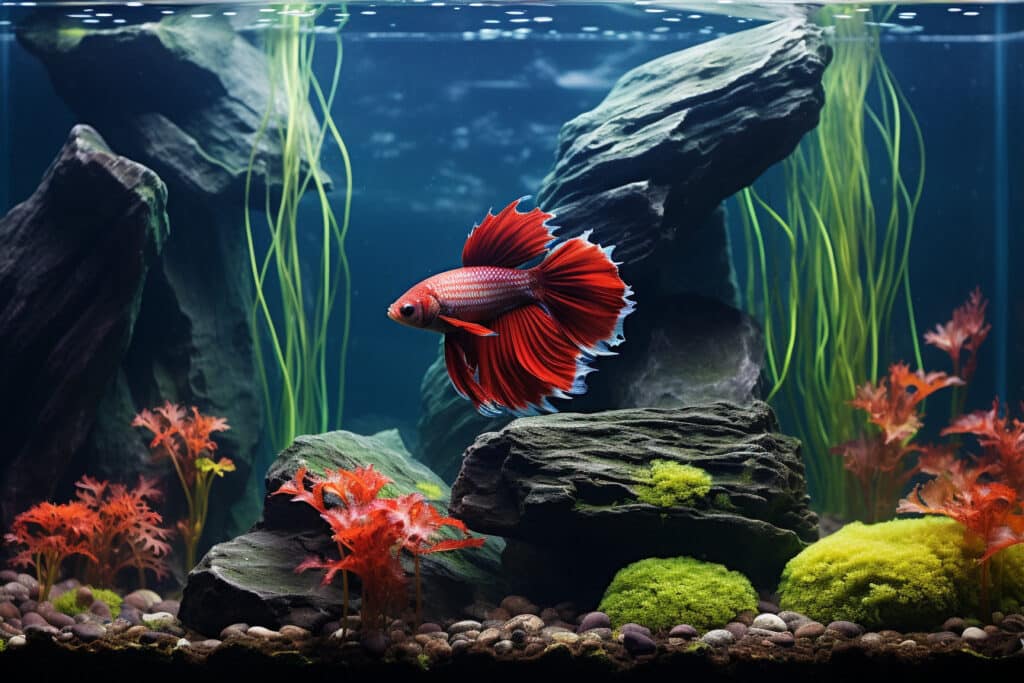
What Is a Betta Bubble Nest?
Bubble nests are a fascinating natural behavior of male betta fish and many betta owners enjoy observing and learning about them.
Betta fish are unique among other types of aquarium fish in that they build a bubble nest. The male bettas will construct a bubble nest by forming bubbles with their saliva and attaching them to tank decorations or plants.
The bubbles form an impressive dome-shaped structure used for protection and insulation, as it provides a safe place for the eggs to hatch and bring new betta fish fry (baby fish) to the world.
Can Betta Fish Live in Tap Water?
While betta fish can technically live in tap water, it’s best to use dechlorinated or conditioned water for their tanks. This is because tap water can have some substances that can be harmful to your fish over time.
Make sure to test the pH of your water regularly and adjust with additives if necessary The recommended pH level for a betta fish tank is between 6.0 and 8.0
Additionally, a general rule of thumb is a weekly water change of 25-50% of fresh water, also keep the water tank clean from uneaten betta fish food, and other contaminants. By doing so, you’ll ensure that your betta fish is living in the best conditions possible and can help them live a long and healthy life.
How Big of a Tank Does a Betta Fish Need?
When it comes to betta fish tank size, a minimum tank size of 2.5 gallons of water is necessary, smaller tanks than this size are not recommended at all. However, larger tanks like 5 gallons are always better as they allow for more swimming space, places for the betta to hide, and a more stable water environment.
The tank should have a lid and a filter, and the water temperature should be maintained between 76-82°F you can use an aquarium heater and serve your betta fish a bot of the tropical climate.
How Long Do Betta Fish Live As a Pet?
With the proper care and maintenance, a Betta fish can live up to five years in captivity, the average lifespan of the betta is 2-3 years. Providing your betta with the ideal tank setup, food, and water parameters will help ensure it lives its longest life possible.
you can have your beautiful betta fish for years to come!
Can You Put More Than One Betta in The Same Fish Tank?
It can be a rewarding experience to keep multiple betta fish in the same tank. However, it is important to research and considers your options carefully, as there are risks associated with housing more than one fish together.
Due to their territorial nature, betta fish may become aggressive when kept in the same tank with another betta fish, so proper water quality management and appropriate tank size are required for success.
Additionally, providing a well-balanced diet that meets all of the needs of each fish is essential. By being mindful of these potential issues before taking on this challenge, you can have an enjoyable experience with multiple betta fishes in the same tank. Good luck!
Do Betta Fish Sleep?
Yes, betta fish do sleep. Betta fish are typically active and alert during the day, but they need regular periods of rest and low energy levels to stay healthy.
During their sleeping period, betta fish will become less active and may rest at the bottom of the tank or near a plant for cover. This is normal behavior for betta fish, so you should not be concerned if you notice your betta taking long naps throughout the day. In addition to providing plenty of hiding spots within their aquariums.
Does Betta Fish Poop?
Have you ever wondered if betta fish poop? Well, let me tell you, they sure do! These little tropical fish may be fancy with their beautiful colors and flowing fins, but when it comes down to it, they’re just like any other animal that eats and digests food. And let me tell you, Betta fish can lay down some logs!
But don’t worry, it’s all a natural part of their bodily functions, and with proper tank maintenance, you won’t even notice the little stinkers doing their business. Just be prepared for some interesting “decorations” on the bottom of your tank!
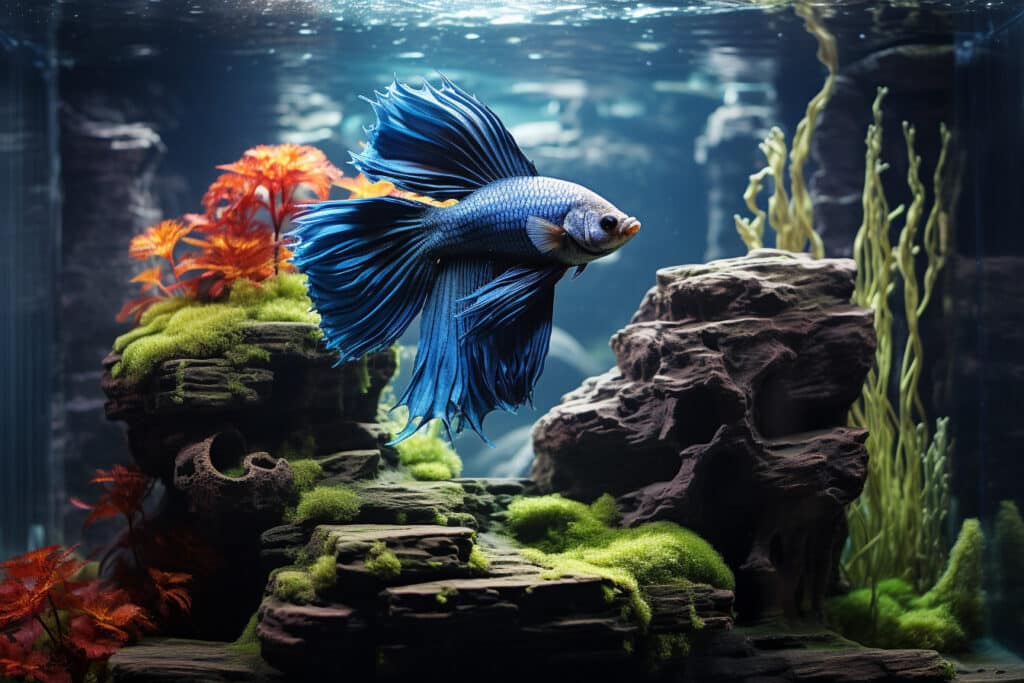
Brighten up Your Life with a Betta Fish Companion
When it comes to pet care, betta fish are a great choice. They can add vibrancy and beauty to any room while providing a calming presence, they’re relatively low maintenance, and perfect for teaching responsibility. Give your home some color with the addition of a betta fish.
Beautiful and Colorful – Betta fish make great pets due to their wide range of colors and patterns. When choosing a betta, there are many options available to fit anyone’s style and preferences, Betta fish are known for their vibrancy making them a stunning addition to any room.
Relaxing – Betta fish can be a calming pet, helping reduce stress and anxiety.
Watching betta fish swim around their tank can be a calming and relaxing experience, helping to reduce stress and anxiety.
Educational – Taking care of a betta fish can teach children and adults about responsibility, animal care, and behavior.
Low Maintenance – when it comes to betta fish care Bettas are relatively low-maintenance pets and do not require a lot of space or equipment.
Affordable – Betta fish are relatively inexpensive compared to other many pets. They also don’t require costly equipment or accessories, making them an affordable option for pet owners.
Thanks for your time in reading this blog post about betta fish care. We hope you found this information useful and that it will help you make an informed decision about owning one of these beautiful creatures.
Betta Fish are sure to bring joy and peace into any room they inhabit! Good luck on your journey as a proud pet owner!

Delighted to have you here at BettaReef! This place is a treasure trove of knowledge about Betta fish, Betta Care, Health, Gear, and much more from the wonders of aquatic life. My journey in this fascinating world began when I was just 8, and now, as a seasoned hobbyist, I’m here to help fellow Betta enthusiasts create a thriving Betta environment for a healthy life.
I’m committed to delivering high-quality content, backed by a stringent editorial process. Each product review is based on real-life usage and practical analysis, ensuring that you get insights and advice that truly matter.
Related Blog Posts:
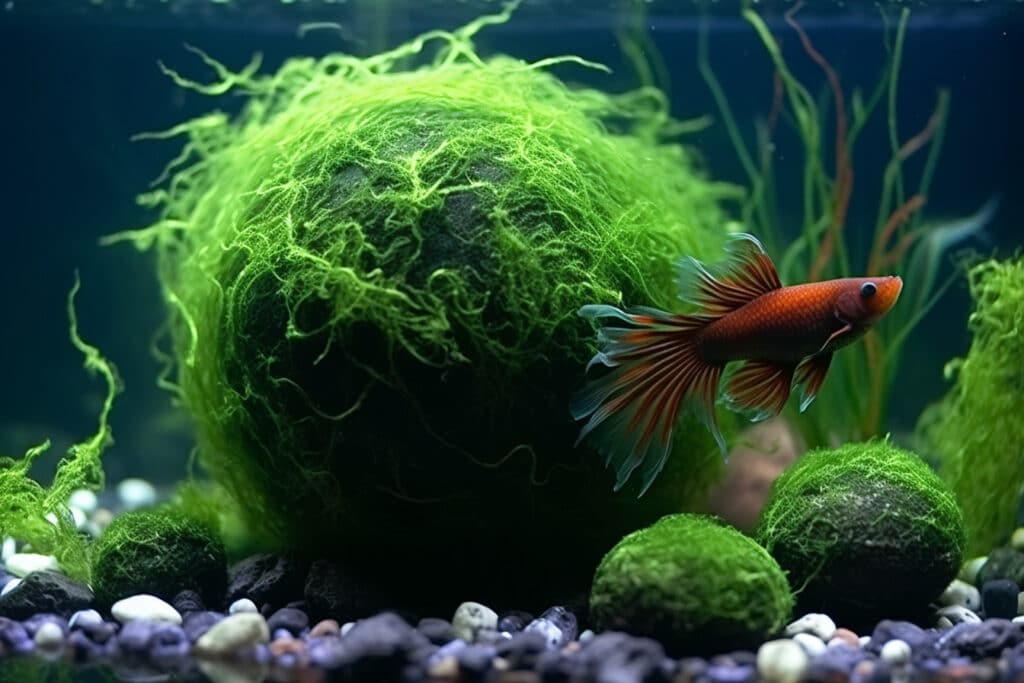
Java Moss for Betta Fish, Is It Good?
Home Java Moss for Betta Fish, Is It Good? Hello, aquatic enthusiasts! Welcome to our
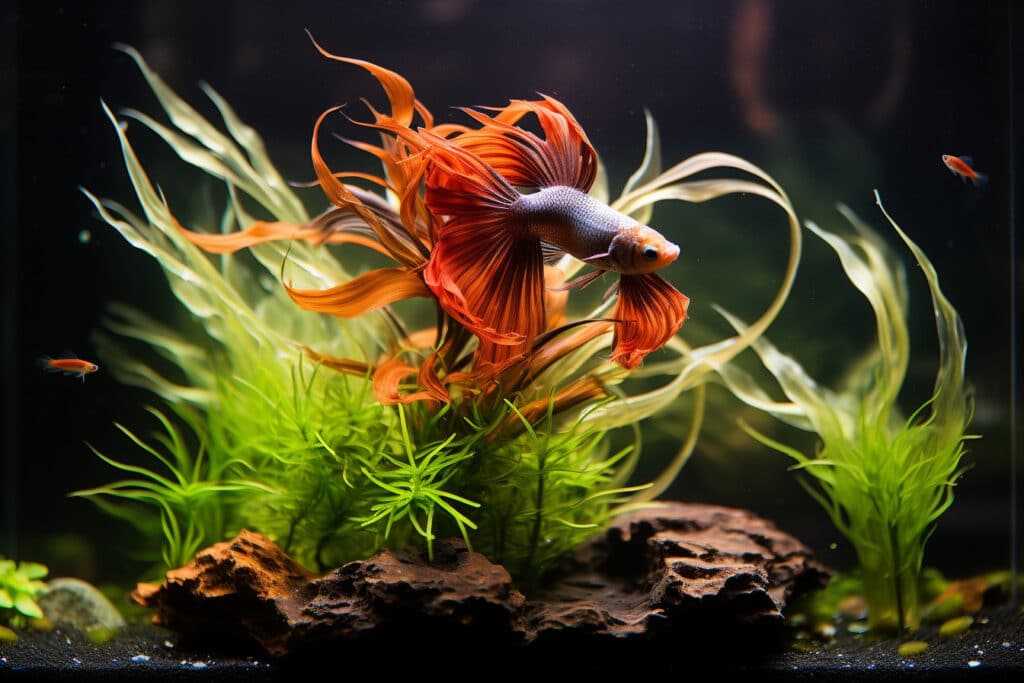
The Best Aquatic Plants For Betta Fish
Home The Best Aquatic Plants For Betta Fish Aquatic Plants for Betta Fish: Uncover the
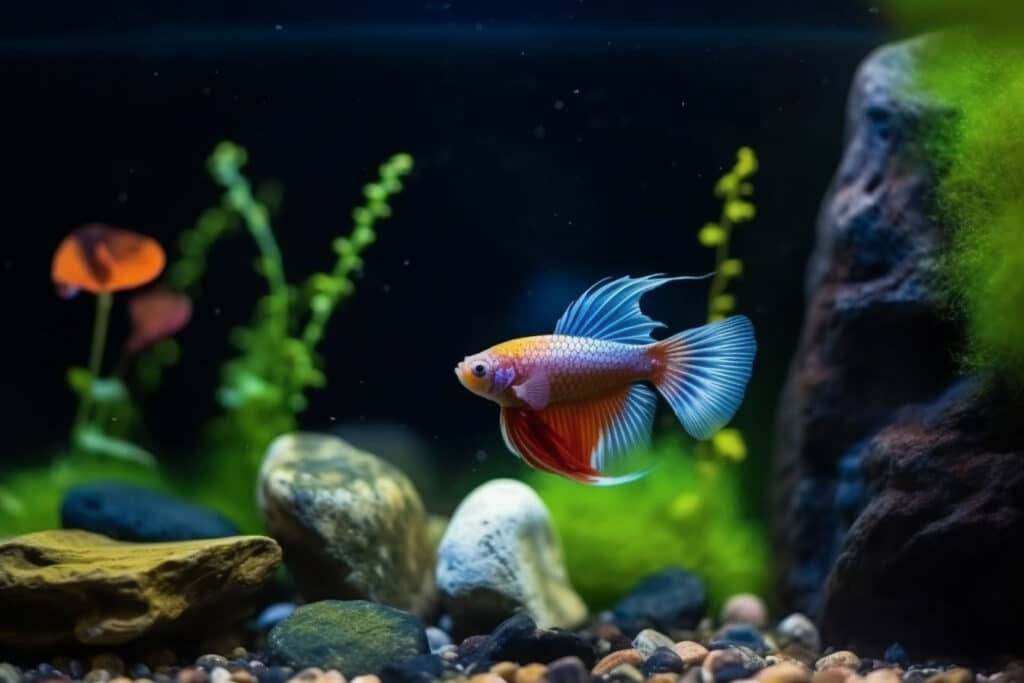
How to Choose Aquarium Rocks for Betta Fish Tanks, The Best Guide.
Aquarium Rocks for Betta Fish Tank Setting up a Betta fish aquarium is more than
